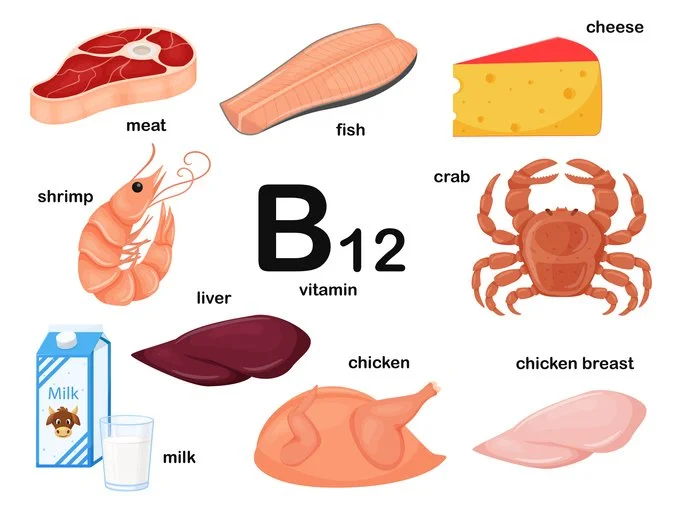If You Are Older, You May Need More B12 Than You Think
By Joy Stephenson-Laws, Holistic Coach, J.D., Founder
I cannot stress this enough—if you're an older adult who is overall healthy, one of the major factors standing between you and vibrant, healthy longevity could be a nutrient deficiency.
Recent research from UC San Francisco highlights that having vitamin B12 levels considered "normal" might still not be sufficient for optimal health. This study involving over 200 seemingly healthy older adults (average age 71), who had no diagnosed dementia or mild cognitive impairment, found that even participants within the clinically healthy range of vitamin B12 exhibited signs of cognitive and neurological impairment.
Vitamin B12 plays a crucial role in numerous bodily functions, including DNA synthesis, red blood cell production, brain health, and immune system function. However, the research revealed slower cognitive processing speeds and an increased number of brain lesions on MRI scans among those with lower active B12 levels within the normal range, conditions linked with cognitive decline, dementia, and stroke.
Why Older Adults Are at Greater Risk
Many assume that eating animal-based foods—such as meat, dairy, eggs, and fish—naturally provides sufficient B12. Unfortunately, this isn't necessarily the case as we age.
Several factors compromise nutrient absorption in older adults, including reduced stomach acidity, diminished production of intrinsic factor (essential for B12 absorption), and the widespread use of medications like proton-pump inhibitors (PPIs) and antacids.
Additionally, the bioavailability of vitamin B12 differs significantly among animal-based foods, with dairy products generally offering higher absorption rates than meat or fish. Furthermore, older adults can experience functional or subclinical deficiencies, meaning normal serum B12 levels might still fail to reflect adequate tissue-level B12 for neurological and cognitive health.
Routine nutrient testing, therefore, becomes crucial for maintaining health and longevity. Regular testing helps identify subtle nutrient imbalances that could otherwise go unnoticed, allowing for personalized nutritional strategies tailored to individual needs.
Proactive Steps for Optimal Longevity
Given these findings, older adults should consider the following proactive steps:
Discuss with healthcare providers the possibility of moderately increasing vitamin B12 intake, even if tests indicate normal levels.
Understand that supplementation can be safe and effective if guided by healthcare professionals, as excess B12 is generally not significantly stored by the body.
Identify optimal dietary sources of vitamin B12, recognizing that dairy products offer notably higher bioavailability than meat or fish, and supplements typically provide around 50% greater bioavailability than food sources.
Vegetarians and vegans should ensure adequate vitamin B12 intake through fortified foods or supplements due to the absence of naturally occurring B12 in plant-based diets.
Avoid smoking and limit alcohol intake, both of which significantly enhance nutrient absorption and reduce chronic disease risks.
Despite compelling evidence, some studies advise caution regarding widespread supplementation. For example, a systematic review in the American Journal of Clinical Nutrition (2020) found modest cognitive benefits from vitamin B12 supplementation among older adults with normal levels, underscoring the necessity of individualized approaches rather than universal supplementation.
As a proud Baby Boomer embracing a predominantly plant-based diet, I'm increasingly mindful of changing nutritional requirements with age. Regular nutrient testing has become an invaluable practice, enabling informed, personalized dietary and supplemental adjustments. Collaborating proactively with healthcare providers helps ensure our evolving nutritional needs are met, supporting a healthier, happier, and longer life.
Sources
University of California San Francisco. (2024). Vitamin B12 Levels and Cognitive Decline Study.
National Institutes of Health (NIH). (2024). Vitamin B12 Fact Sheet for Health Professionals. Retrieved from https://ods.od.nih.gov/factsheets/VitaminB12-HealthProfessional/
American Journal of Clinical Nutrition. (2020). Vitamin B12 supplementation and cognitive function: A systematic review.
American Family Physician. (2017). Vitamin B12 Deficiency Recognition and



